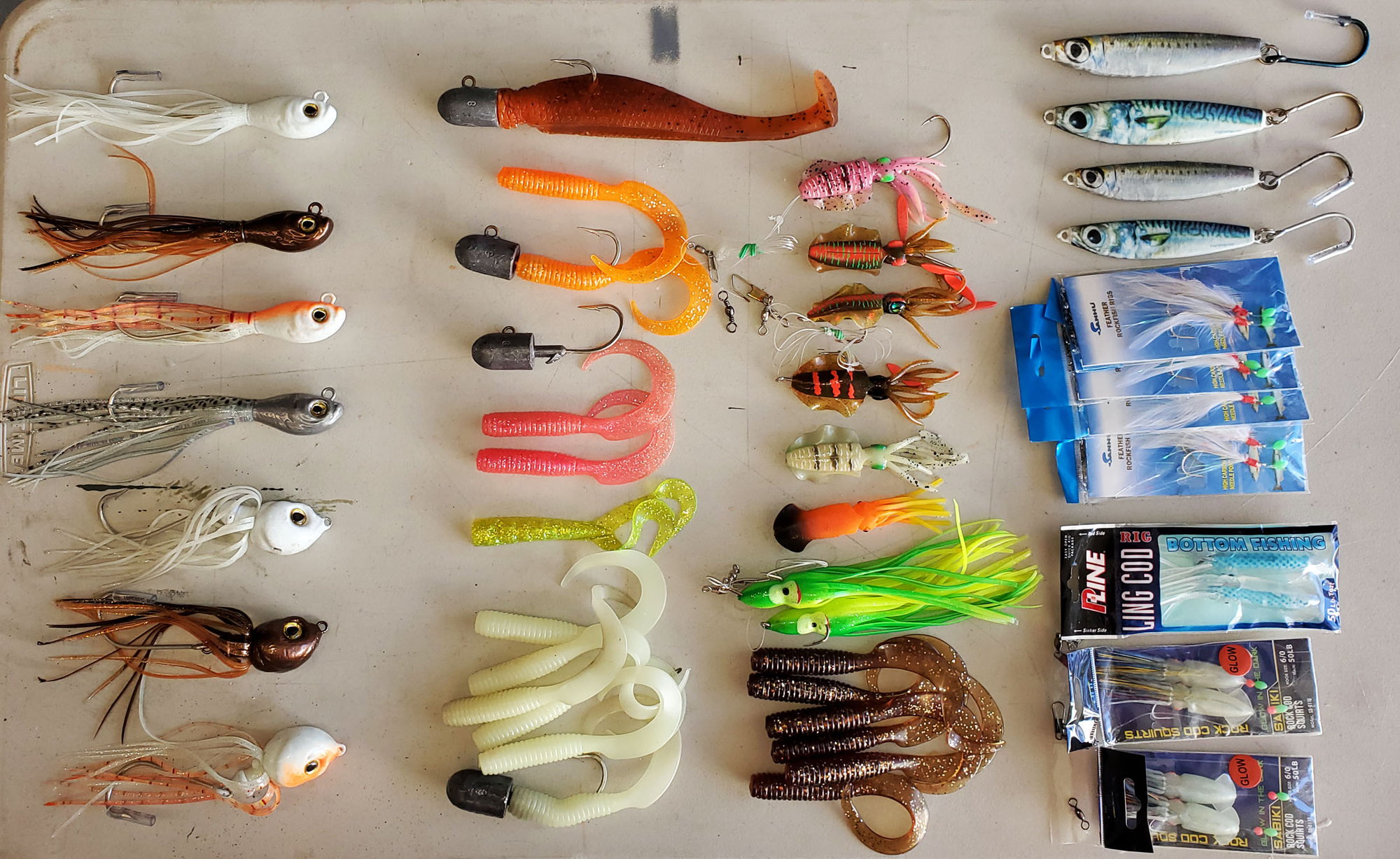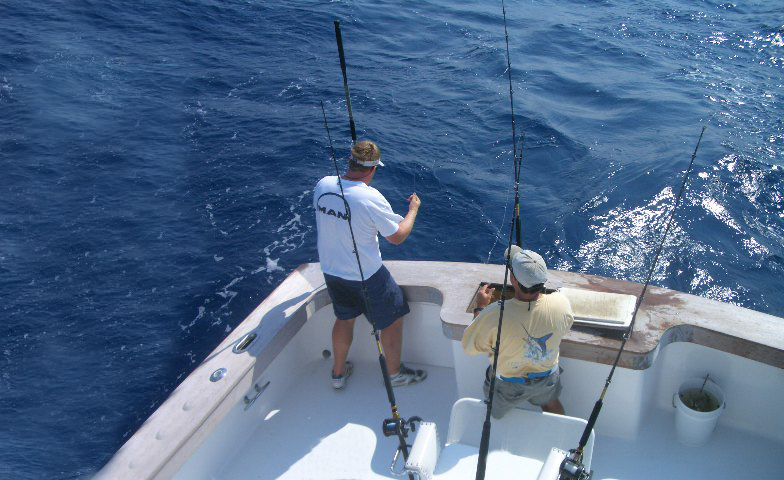I was nervous when I first started fishing for lingcod. I had no idea how to bring in the fish until I learned some crucial tips about this fascinating creature.
Keep reading to find out what my 19 best tips are so that you can start fishing like a pro!
Use the right bait
Use chunks of herring, anchovies or smelt as bait. Lingcod like to eat other fish so these types are particularly attractive to them. These fish are also found near shore, which makes them perfect for fishing in shallow areas where lingcod love to live. This will ensure that you aren't wasting your time fishing in waters where lingcod aren't likely to be.

Keep your bait away from the bottom
A common problem with many beginner anglers is that they are afraid of setting their bait on the bottom because it could get fouled or stuck there. The truth is, this happens very rarely and you should only be concerned if you are fishing near rocks or reefs. You must remember that lingcod live on the bottom, so if your bait is sitting at 10 feet above the sea floor they aren't going to have much interest in it!
Keep a tight line as you reel in
You need to keep a tight line as you reel in because this helps to prevent the fish from feeling anything as it is being reeled in. This will help you to catch more fish.
Use a bigger hook
A lot of anglers make the mistake of using small hooks when they are fishing for lingcod. Instead, you should use larger hooks that span at least 7/0 or 8/0. The size of the hook is important because it reminds the fish that it is an intruder in this environment and it will help to scare them out of their comfort zone, bringing them closer to your line.
Use the correct gear
You need to use at least 100 pound test if you want to fish for lingcod. The reason why this is so important is because lingcod are a very strong fish and they can easily break lighter lines when they are fighting with them on your line. Lighter lines can also break more easily if you are reeling in a lingcod that is thrashing around and trying to escape. This will cause you to lose the fish, which is exactly what you want to avoid!
Use a big fishing reel
The bigger your reel is, the easier it will be for you to reel in a fish that is trying to escape. You should also make sure the handle is comfortable for you to hold on to, especially if you are going to be fishing for lingcod for an extended period of time.

Reel faster as you get closer to your catch
The moment you feel any tension on the line or find yourself struggling to reel it in, you should start reeling faster. This will help ensure that the fish is unable to get away from you and fall back down into the water. If you don't catch it soon after this happens, then chances are you won't be able to catch them at all!
Watch out for flounder
These fish will occasionally steal your bait and get hooked instead of the lingcod. Be sure to check all nearby fish when you pull in your line so that you can make sure it is a lingcod on your hook before you reel it in!
Use baits with lips
Lingcod often have large mouths so you should ensure that your bait has lips that will hook it easily. The best way to do this is to use frozen fish such as herring, smelt or anchovies.
Choose your fishing spot carefully
Lingcod are found near many shorelines around the world but you should make sure that they are abundant before you start fishing for them where there aren't many. This will help ensure that you get the most out of your time and are more likely to catch one!
Work on developing a feel for the lingcod
If you fish in an area where lingcod live often, you are likely to start feeling them nibbling at your bait even before you see them swimming above it or feel tension on the line. This will make it easier for you to spot the fish before they are too far away from your hook.
Use a bait that looks like a fish
The lingcod has an excellent sense of smell and if they can smell that it is not actually a live fish, then there is no way that they are going to come over and nibble on it! Make sure that you cover your hook with some form of scent so that they don't realize what you're trying to pull over on them.
Use a rubber squid
Another way for you to hide the fact that your bait is not actually alive is by using a squid or octopus as bait. They might be able to tell that it isn't a living thing, but they cannot make out exactly what it is or whether or not it was freshly killed!
Use live herring when you are fishing in winter
If you want to catch lingcod during the colder months of the year, then you will need bait that stays alive in cold waters. Some of the best baits for this are herring, smelt and anchovies. Be sure to use a lot of them as well so that there is more than enough scent coming from your bait!
Bring a jug of chum with you
If you want to bring up a lingcod, then you will need to make sure that there is enough bait in the water for it to smell. You can do this by bringing some chum with you when you are fishing!
Change your bait often if you are not catching anything
The lingcod will be drawn towards your rod as soon as they find out that a fish has been hooked. They will be unable to tell what type of fish is on the line though, so they will keep nibbling at it as soon as they can! If you don't change your bait in between bites, then there is no way that you are going to catch a lingcod.
Be patient and focus on casting
The fact that lingcod are so good at picking out bait that is fake makes it all the more important for you to cast your line with extreme precision! If you don't do this, then they will be able to notice any flaws in your technique.
Cover up your squid with prawns
The smell of a prawn will mask the scent of a squid whic hh will keep the lingcod from being able to tell that you are using a fake bait. This is especially important if you use fresh squid as opposed to frozen or tinned ones!
Be sure to pull your line in at a consistent speed
The lingcod has very sharp senses and it will be able to detect any difference in your speed. If you reel in your line at a much quicker rate than usual, then the fish will be able to tell that something is up and they won't bite!
Conclusion
Learning how to successfully catch lingcod is no easy task! Not only do they have excellent senses and a tendency to steal bait, but they can also become extremely aggressive when you try to reel them in.
You will want to avoid getting one of these fish near the boat because it will bite at it as hard as possible if you don't manage to get it away from your line!
Knowing these tips will only help you improve your chances of catching lingcod, so make sure that you focus on the details and try to put them into practice as soon as possible.

